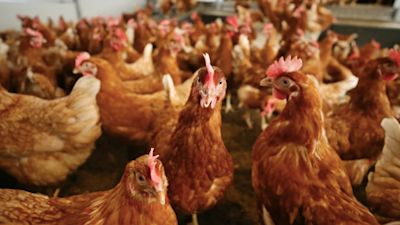Birds to be humanely culled after bird flu confirmed at poultry unit in Warwickshire

Birds at a premises in Warwickshire infected with a strain of bird flu will be humanely culled.
Avian influenza H5N1 was discovered at a small poultry unit at a premises near Alcester in Bidford, the county council has confirmed. Further testing shows it is a highly pathogenic strain.
A 3km Protection Zone and 10km Surveillance Zone have been declared around the location.
Last week, a national bird flu prevention zone was declared to stop the spread of the disease among poultry and other birds, veterinary health officials announced.
The chief veterinary officers of Wales, England and Scotland declared that it will be a legal requirement for all bird keepers in Great Britain to follow strict biosecurity measures to help protect their flocks.
In October, a case of avian influenza was confirmed at a wildbird rescue centre in Worcestershire.
What is bird flu?
According to the NHS, Bird flu, or avian flu, is an infectious type of influenza that spreads among birds. In rare cases, it can affect humans.
No humans have been infected with H5N1, H7N9, H5N6 or H5N8 bird flu in the UK – this includes the type of H5N6 virus recently found in humans in China.
How does bird flu spread to humans?
Bird flu is spread by close contact with an infected bird (dead or alive). This includes, touching infected birds, touching droppings or bedding or killing or preparing infected poultry for cooking.
You can't catch bird flu through eating fully cooked poultry or eggs, even in areas with an outbreak of bird flu.
What can you do to prevent catching or transferring bird flu
If you're visiting a foreign country that's had an outbreak you should, wash your hands often with warm water and soap, especially before and after handling food, in particular raw poultry, use different utensils for cooked and raw meat, make sure meat is cooked until steaming hot and avoid contact with live birds and poultry.